EXPLANATION OF OUR NON-VPP
STAND

(Presented on Sunday, 6 November 2005 to the
congregation of Calvary Jurong B-P Church by Rev James Chan Lay Seng, Pastor
of Calvary Jurong B-P Church)
I.
OUR STAND FOR THE BIBLE
1. We are going through a very tough time. Our church is facing a
problem concerning the VPP teaching (Verbal Plenary Preservation). The VPP
proponents did not keep quiet even after we have declared our stand on 2
October 2005. They continue to promote the VPP and try to lead as many
members as possible to leave the church.
The Board of Elders is concerned for the welfare of the church and
wants to explain to our members why we
take the non-VPP stand.
2. We do not want to pick on anyone. However, it is inevitable that
some names have to be mentioned in this presentation because the VPP
teaching comes from them.
3. We want to assure our members that we believe the Bible is the
inspired, infallible and inerrant Word of God as stated in our Constitution
4.2.1.
a. We hold to the inerrancy and infallibility of the Bible in
the original writings.
b. This is in the original autographs of the Old and New
Testaments.
(1) The Old Testament was written in Hebrew and Aramaic.
(2) The New Testament was written in Greek.
(3) These O.T and N.T writings are known as Autographs.
(4) Only the original autographs of the O.T and N.T are
the inspired, infallible and inerrant Word of God.
c. This has always been the Bible-Presbyterian position since
its founding in 1950. I learned this wonderful truth from Rev Timothy Tow
at FEBC.
4. We believe that the King James Version (KJV) is the most faithful and
accurate translation of the Bible in English.
a. We believe that the KJV is the work of godly translators,
using the best Hebrew and Greek texts. They have done a wonderful job in
producing for us the Word of God in its entirety, the KJV, which is the
closest to the original.
b. We want to assure our members that we can trust our English
KJV because all the doctrines, miracles, prophecies, facts of history,
geography and science are accurate; and all the promises of God given to men
are reliable and trustworthy.
c. We can preach, teach, study and believe it with full
confidence.
d. We will continue to use the KJV in all our ministries.
e. This is the position we held since the beginning of the
Bible-Presbyterian Church in Singapore in 1950.
f. This is also the position held by the Westminster Divines,
the Reformers, the KJV translators and many fundamental Christians all over
the world.
Please do not listen to the accusation of some who said that
we do not believe the Bible.
5. We believe in the Divine Preservation of God’s Word, and that all the
words are kept pure, and preserved in the body of manuscripts throughout the
ages.
a. However, we do not believe the VPP teaching as defined in the
True Life B-P Church and FEBC’s amended Constitution, Article 4.2.1.2
“We believe the Hebrew Old Testament and the Greek New Testament underlying
the Authorised (King James) Version to be the very word of God, infallible
and inerrant.” (Refer Appendix A).
b. This is certainly a new teaching — the teaching of VPP.
II. THE ORIGIN OF VPP TEACHING IN SINGAPORE
1. The VPP teaching started in June 2002.
a. The FEBC wanted to defend the KJV position by publishing a
paper in “The Burning Bush”.
The discussion went on between Dr Jeffrey Khoo and Rev
Charles Seet — “Why I Resigned from Teaching at FEBC, Rev Charles Seet’s
letter to Life B-P Church Session, 8.11.02, pg 1”.
In June this year (2002) I had prepared answers in support of our KJV only
position in response to two sets of questions (a total of 70 questions) that
were written by some writers who do not hold to the KJV only position. I
shared these with Dr Jeffrey Khoo and he proposed that we publish it jointly
in the next issue of the Burning Bush. He also proposed some
amendments to them which I did not entirely agree with. For instance, I had
written for my answer to the question, Must we possess a perfectly
flawless Bible translation in order to call it “the Word of God?” If
so, how do we know “it” is perfect? If not, why do some limit “the Word of
God” to only one 17th Century English translation? Where
was “the Word of God” prior to 1611?
Later, Rev Quek Suan Yew participated in the discussion.
Both Dr Jeffrey Khoo and Rev Quek believe that a “Perfect God has given man
a Perfect Bible” though they do not have enough evidence to prove it —
Why I Resigned from Teaching at FEBC, Rev Charles Seet’s letter to Life BPC
Session, 8.11.02, p.5.
In the mean time, Rev Quek Suan Yew sent me an e-mail in which he stated (25th
July):
“Please allow me to say that you have written very clearly and very well
what I used to believe. But also allow me to say that I find your arguments
contradictory which was also the same contradiction I had in my own heart
till I change the entire premise of my approach… If I say that God
has preserved the biblical texts and I DO NOT HAVE it then how can I say
that GOD has preserved it! This was the contradiction I had in my heart for
quite a while. I did not know how to reconcile it. No matter how many
books on the evidence of transmission I read, I could not answer all the
questions, until I change the entire premise of my understanding. My
approach was to BEGIN FROM THE BIBLE, THEN EVALUATE ALL OTHER EVIDENCE IN
LIGHT OF THE BIBLE EVEN THOUGH I MAY NOT HAVE ALL THE ANSWERS. DID GOD
INSPIRE HIS WORD? YES! DID GOD PRESERVE HIS TEXT? YES! PSALM 12:6-7
MAKES THAT VERY VERY CLEAR…. If I still have questions that I cannot answer,
then the problem is not with the preserved texts but my weak and fragile
interpretation of the evidence before me. I may not have enough evidence at
this point in time or that my ability is impaired or both. BUT I CANNOT AND
WILL NOT SAY THAT GOD HAS INSPIRED AND PRESERVED A BIBLICAL TEXT FOR MAN BUT
WE DO NOT HAVE IT. THIS IS A CONTRADICTION THAT, IN MY OPINION, UNDERMINES
AND PERHAPS ATTACKS THE OMNIPOTENCE OF GOD.”
b. The VPP proponents claim Psalm 12:6, 7 as scriptural
support.
c. The discussion went on, and there were many disagreements in
their views.
(i) In the end, Rev Charles Seet and Rev Colin Wong
resigned from teaching at F.E.B.C.
(ii) The book KJV Q&A was subsequently printed in 2003.
2. This is the beginning of the VPP teaching in
Singapore.
a. I have never heard of this teaching in my days at FEBC. Rev
Timothy Tow said that only the original autographs are inspired.
b. Dr Waite regards the TR underlying the KJB as inerrant,
infallible and inspired, and that this is his own personal conviction and
belief — Defending the KJB, p.48, 49. He did not make it a doctrine.
(Refer Appendix B1 & B2).
III. THE BIBLICAL BASIS FOR VPP TEACHING
1. The VPP proponents quote Psalm 12:6, 7; Matthew 5:18, 24:35 as
scriptural support.
In fact, these verses support the Preservation of the Bible
only. We must not go beyond what the Bible says. When Scripture
is silent, we must be silent too.
2. In his book KJV Q&A, the author asked: “Is Psalm 12:7 talking about
God’s preservation of His people or of His Words?
a. He said, “Anti-KJVists, however, deny that verse 7 refers to the
‘words’ of verse 6. They say that the words ‘them’ in verse 7 refers to the
‘poor’ and ‘needy’ of verse 5”.
While this is possible, it is preferable and only natural to
read verse 7 in connection with its nearest antecedent, which is in verse 6,
referring to the “words of the Lord” — KJV Q&A (p.26, 27).
b. It is not true that those who refer “them” in verse 7 to people
are anti-KJVists.
(1) Matthew Henry referred “them” to people in his
Commentary Vol. 3, p.281. (Refer Appendix C1).
(2) Charles H. Spurgeon said the same, and referred “them”
(v.7) to God’s people — The Treasury of David, Vol 1, p. 141. (Refer
Appendix C2).
(3) The KJV translators themselves referred “them”
to everyone of them (people) — refer 1st print of KJV in 1611.
(Refer Appendix C3).
c. In fact, there is no specific biblical support
that the Hebrew Old Testament and the Greek New Testament underlying the
Authorized KJV is the very Word of God, infallible and inerrant.
IV. THE MOTIVE FOR DEFENDING KJV
The VPP
proponents have a good motive to defend the KJV Bible, but their methods
are wrong.
1. They elevate the KJV underlying Hebrew and Greek texts to
the level of the original Bible (Autograph) which is inspired, inerrant and
infallible.
No one (except Dr Waite and the VPP proponents) in the past or
present, would hold to such a position because to do so would be going
beyond what the Bible plainly teaches. Moreover, Dr Waite wrote in his
book, Defending the KJB, p. 48, that it is his own personal
conviction and belief.
2. We have asked many Bible scholars
and teachers on this issue.
a. All regard it as an extreme view.
b. Some even called it a heresy.
3. The leader of VPP wants to give the impression that there are
Christian leaders who support this new teaching.
a. G. I. Williamson
(1) The author claimed the Westminster Confession of
Faith and G. I. Williamson support his view in his KJV Q&A, p 23, that the
T.R. is a photocopy of the autographs.
(2) Reply from G.I. Williamson: “I do not believe that it
is quite equal to a photocopy of the autograph.”
At the end of his letter he said: “No one should
presume to quote me as one who thinks the TR is absolutely perfect.
In August 2002, we corresponded with G.I. Williamson, the one who wrote the
commentary on the Westminster Confession (1964) and whom Dr Jeffrey Khoo
quoted as saying:
“This brings us to the matter of God’s ‘singular care and providence’ by
which He has ‘kept pure in all ages’ this original text, so that we now
actually possess it in ‘authentical’ form. And let us begin by giving an
illustration from modern life to show that an original document may be
destroyed, without the text of that document being lost. Suppose you were to
write a will. Then suppose you were to have a photographic copy of that will
made. If the original were then destroyed, the photographic copy would still
preserve the text of that will exactly the same as the original itself
(emphasis his). The text of the copy would differ in no way whatever
from the original, and so it would possess exactly the same ‘truth’ and
meaning as the original. ... Thus it is seen to be the sober Truth, as
declared by the Confession of Faith, that the infallible text of the Word of
God has ‘by ... singular care and providence (been) kept pure in all ages,’
so that we do now actually possess before our very eyes the ‘authentical’’
text of the Word of the living God. We may say concerning the actual words
that we see on the pages of the Greek New Testament, ‘Behold, there are the
very words which have come forth from the mouth of God. Amen.”
Jeffrey Khoo: I say Amen to Williamson’s exposition of the WCF and the
doctrine of providential preservation.”
This was the reply that we received from G. I. Williamson:
----- Original Message -----
From: “G.I. Williamson”
Sent: Monday, August 12, 2002 5:25 AM
Subject: clarification
Dear ………
While I have great respect for the so-called Textus Receptus (TR), I do
not believe that it is quite equal to a photocopy of the autographa. You
may know of Dr. Edward F. Hills who has written defending the King James
Version as the best version because it is/was based on the TR. He was a long
time friend and we had many discussions of this very question. He helped me
to see the cogency of the argument for high respect for the
Byzantine/Majority text. Of all people in the ancient world the Greek
speaking Eastern Church surely would have been the place where changes -
even those made unintentionally by people making hand written copies - would
have been most likely detected. I accept that as a sound argument. But
even Dr. Hills was not quite willing to absolutize the TR. And neither am I.
It must be remembered that the foundation of the argument for the
superiority of the TR is the doctrine of divine providence. God, who
controls all things, has seen to it that his word has been preserved. True.
But it is this same true God who has also preserved throughout the area
of the world in which the ancient church developed translations into other
languages, and some manuscript copies of the Greek N.T. which are not always
in complete agreement with the TR. I do not think we have a right to
automatically rule out as of no value whatever this component. It may be
true that the TR is right 99 times out of 100 - when there is a textual
question. But that does not, in my opinion, prove that it is always right.
The bottom line for me, then, is that I give great deference to the TR.
But I cannot go along with those who think that it is so perfect that there
is no work for us to do in comparing the other ancient manuscripts, etc.
I think my own Commentary (pp. 15-17) makes this sufficiently clear that
no one should presume to quote me as one who thinks the TR (the
Byzantine/Majority/Received Text) is absolutely perfect.
I hope this is of some help. Don’t hesitate to come back if I can be of
further assistance.
In Christ,
G.I. Williamson
----- Original Message -----
From:
G.I. Williamson
Sent:
Monday, August 12, 2002 11:40 PM
Subject:
More on TR
Dear ……..
I had to respond rather quickly yesterday and now, in reading over your note
again, feel that I should add a bit.
In your letter you said: “There are some influential leaders in my Church
who understand and quote your statement to support the idea that God has
raised, among the midst of the Byzantine/Majority/Received Text, a single
purified Text which is the virtual ‘photocopy’ of the autograph.”
This is an interesting sentence because it could so easily be taken either
one or the other of two ways. It all depends on what is meant by the word
‘virtual.’ My dictionary says this word means: “having the essence or effect
but not the appearance or form of.” The same dictionary says of the word
‘virtually’ that it means: “in effect though not in fact; practically,
nearly.” If the word virtually is intended in your letter to mean this then
I could agree with it. But if it is intended to mean that the TR is a
100% perfect reproduction of the autograph, then I could not agree with it.
I’ve discussed this with various scholars - including the late Edward F.
Hills - and none of them ever went quite that far. I hope that the people
you describe as ‘influential leaders’ in your church do not go that far
either because, if they do, they have gone too far. But if they
mean what the dictionary defines as the meaning of virtual (virtually) then
I believe I could work with them.
I just felt that I should add this to what I wrote yesterday.
Wishing you the Lord’s grace and blessing,
G.I.
b. Edward F. Hills
(1) In his article, “A Plea for a Perfect Bible, The
Burning Bush, Jan 2003, p.11”, the author claimed that E. F. Hills supports
his view.
(2) Hills never claimed perfection for the KJV or
its underlying text, but only said that the uncertainties were kept down
to a minimum by God’s special providence.
In his article, “A Plea for a
Perfect Bible” Dr Khoo cited E. F. Hills as follows:
Such a high view of Scripture grants believers maximum certainty with
regard to the authenticity of the inspired words of Scripture. And such
certainty can only be had if the doctrine of the special providential
preservation of the Scriptures is upheld. Dr E F Hills wrote, “if we believe
in the special providential preservation of the Scriptures … we obtain
maximum certainty, all the certainty that any mere man can obtain, all
the certainty that we need. For we are led by the logic of faith to the
Masoretic Hebrew text, to the New Testament Textus Receptus, and to the King
James Version.”
The following is the full
context from p.224 of E.F. Hill’s book, “The King James Version Defended”:
“Maximum
Certainty Versus Maximum Uncertainty.
God’s preservation of the New Testament text was not
miraculous but providential. The scribes and printers who produced the
copies of the New Testament Scriptures and the true believers who read and
cherished them were not inspired but God-guided. Hence there are some New
Testament passages in which the true reading cannot be determined with
absolute certainty. There are some readings, for example, on which the
manuscripts are almost equally divided, making it difficult to determine
which reading belongs to the Traditional Text. Also in some of the cases in
which the Textus Receptus disagrees with the Traditional Text it is hard to
decide which text to follow. Also, as we have seen, sometimes the several
editions of the Textus Receptus differ from each other and from the King
James Version. And, as we have just observed, the case is the same with the
Old Testament text. Here it is hard at times to decide between the kethibh
and the keri and between the Hebrew text and the Septuagint and Latin
Vulgate versions. Also there has been a controversy concerning the headings
of the Psalms.
In other words, God does not reveal every truth with equal
clarity. In biblical criticism, as in every other department of knowledge
there are still some details in regard to which we must be content to remain
uncertain. But the special providence of God has kept these uncertainties
down to a minimum. Hence if we believe in the special providential
preservation of the Scriptures and make this the leading principle of
our biblical textual criticism, we obtain maximum certainty, all the
certainty that any mere man can obtain, all the certainty we need. For we
are led by the logic of faith to the Masoretic Hebrew text, to the New
Testament Textus Receptus, and to the King James Version.”
The underlined words were the parts quoted by Dr Khoo. As
anyone can see, his selective quotation of E.F. Hills to support his view
has caused him to misrepresent Hills. Hills never claimed perfection for
the KJV or its underlying text but only claimed that the uncertainties were
kept down to a minimum by God’s special providence. Notice that
Dr Khoo also omitted the part that reads, “and make this the leading
principle of our biblical textual criticism.” This may have been done
deliberately, since Dr Khoo is against biblical textual criticism.
c. John Owen
The author of John Owen on The Perfect Bible, The Burning Bush
July 2004, claimed that John Owen is of the same view.
He omitted John Owen’s own acknowledgement of variant readings in the
immediately proceeding paragraph.
The words of John Owen that were omitted in the
article, John Owen on The Perfect Bible, The Burning Bush, July 2004,
show that Owen did not hold to the “The Perfect Bible” view.
In an article, John Owen on The Perfect Bible The Burning
Bush (July 2004), Dr Jeffrey Khoo claimed that John Owen believed in VPP.
He wrote that
Owen not only believed in a 100% inspired Autographa but also a
100% preserved Apographa. He wrote, “It is true, we have not the Autographa
of Moses and the prophets, of the apostles and evangelists; but the
Apographa or ‘copies’ which we have contain every iota that was in them
(387). (Refer Appendix D1).
He conveniently omitted John Owen’s own
acknowledgement of variant readings in the immediately proceeding
paragraph on p 388, (Refer Appendix D2).
There is no doubt but that in the copies we now enjoy of the
Old Testament there are some diverse readings, or various lections....But
yet we affirm, that the whole Word of God, in every letter and tittle, as
given from Him by inspiration is preserved without corruptions. Where there
is any variety it is always in things of less, indeed of no, importance. God
by his providence preserving the whole entire, suffered this lesser variety
to fall out, in or among the copies we have, for the quickening and
exercising of our diligence in our search into His Word.
The words of Owen that were omitted in Dr Khoo’s article show that
Owen did not hold to Dr Khoo’s VPP view, and that he advocated the exercise
of diligence in searching into God’s Word to harmonise textual difficulties.
d. Trinitarian Bible Society (TBS)
In a table entitled What Kind of Bible Do You Have?
defining three views of the Perfection of the Bible, the author claimed the
Trinitarian Bible Society (TBS) as holding “The Perfect Bible” view.
A check
made with Mr Mark Fenn, Editorial Asst of TBS, London in
August 2002 confirmed that TBS does not take “The Perfect Bible”
view.
Dr David Allen, the deputation speaker of TBS, verified during his
trip to speak at the Life B-P Church camp in June 2004, that TBS does not
take the position that Dr Jeffrey Khoo advocates.
In a table entitled What Kind of Bible Do You Have?
defining three views of the Perfection of the Bible, Dr Jeffrey Khoo
misrepresented the Trinitarian Bible Society (TBS) as holding the Perfect
Bible view.
A check made with Mr Mark Fenn, Editorial Asst of TBS,
London in August 2002 confirmed that TBS does not take the view as Dr Khoo
alleged. When asked what is the meaning of the phrase found in the WCF
“kept pure in all ages”, Mr Fenn produced an article written by Mr A.J.
Brown, the Editorial Secretary of the TBS, as found in the TBS Quarterly
Record, Oct-Dec 1984 entitled “Faith and Textual Scholarship.”
The Reformed Position — The great 16th century Protestant
Reformers were under no illusion that their manuscripts were perfect.
Both Calvin and Beza, for example, were quite prepared to acknowledge that
in matters of smaller details, all of their manuscripts might be wrong at
particular passages. This possibility did not greatly trouble them because
the doctrines of the Christian faith could all be established from other
passages which were not in doubt. The Reformers upheld the general
reliability of the text of the Greek and Hebrew manuscripts, but they felt
at liberty to debate over the exact wording of individual passages.
Essentially the same view as Calvin’s and Beza’s was reflected
in the Westminster Confession and Particular Baptist Confession in the 17th
century. In declaring that the Old Testament in Hebrew and the New
Testament in Greek were “kept pure in all ages,” these confessional
statements noticeably do not here use the word “perfect.” They insisted on
the entire perfection of Scripture itself, but they did not speak of the
perfection of any or all of the manuscript copies.
Truthfulness — It is right to encourage an overall confidence
in the Bible, and a faith in the perfection of the inspired originals, and
to give due recognition to the workings of divine providence, but in common
with orthodox Christian scholars in every age we should also make a
realistic acknowledgement that the manuscript copies and the translations
are to some extent subject to the fallibility of human creatures. It is
potentially damaging for a minister to pretend to his congregation that
there are no differences or difficulties among the manuscripts. Sooner or
later the pretence will be found out by those who use the minds which God
gave them, and the damage to faith may be far greater than if the existence
of difficulties had been candidly admitted. The interests of truth and
faith are not well served by suppressing information about the historical
evidence.
Faith and Uncertainty — Even some very conservative writers
would agree that there are at least some textual details in regard to which
we must be content to remain uncertain (for example, Dr E.F. Hills “The King
James Version Defended” 1984, p 224). The fact that there are textual
difficulties affecting some matters of detail does not destroy any doctrine
which is essential to salvation. There is therefore no reason why this
limited area of uncertainty should unsettle the saving faith of the
believer.
The Burning Bush Jan 2003, p 11 (See Proponents, last column)

e. International Council of Christian Churches (ICCC)
(1) In his chart, “What Kind of Bible Do You Have?”, the
author claimed that ICCC supports his view of “The Perfect Bible”.
(2) The author of “A Child of God looks at the Doctrine
of VPP, The Burning Bush July 2005, p 77” claimed that the ICCC holds the
VPP view.
The Singapore Council of Christian Churches (SCCC) on 29 October
2005, reiterates its stand “On the Scriptures” that they do not hold to the
VPP theory. (Refer Appendix E1).
In fact, the SCCC calls upon believers NOT to
subscribe to the VPP teaching.
V. THE DANGER OF VPP TEACHING
1. The VPP
proponents make this new teaching a touchstone of Christian fundamentalism.
Those who disagree with them are branded as Neo-Evangelicals and
Neo-Fundamentals.
They accuse them of denying the Bible.
2. They promote this new teaching at all costs without considering its
destructive effects on the peace and unity of our church.
We know that they are working hard to get as many members as
possible out of our church.
This kind of action cannot come from God as it divides the family of
God and causes strife and contention.
VI. SUMMARY OF THE VPP TEACHING
1. The VPP teaching that the Hebrew and Greek texts underlying the KJV
are perfect has no specific scriptural support. All the scriptural verses
quoted by the VPP proponents simply refer to the Divine Providence of God’s
Preservation of His Word. If the TR underlying the KJV is perfect, God will
show us clearly and the Holy Spirit will guide us to this so-called truth,
but this is not the case.
2. The KJV translators themselves did not claim that their translation
is perfect.
a. In fact, the KJV has gone through many editions and
revisions.
b. Likewise, the Hebrew and Greek texts underlying the KJV.
c. The Trinitarian Bible Society (TBS) did not claim that the TR
or the KJV is perfect.
3. The VPP proponents claimed that G. I. Williamson, Edward Hills, John
Owen, TBS and ICCC support their view but this is not so, as shown above.
4. The VPP teaching is based on human reasoning, arguments and
assumptions. It should, therefore, be rejected.
a. It has no evidence of scriptural support. It is based on
personal convictions.
b. It is not a doctrine but a new teaching. Charles Spurgeon
says: “There is nothing new in theology save that which is false”.
c. The ICCC (SCCC) calls on all Christians not to accept the VPP
teaching.
5. The VPP teaching is regarded as heresy by many Christian leaders.
VII. CONCLUSION
1. Members, what would you do when you know that the new VPP teaching is
not true? Would you allow it to flourish in our church?
2. Our main desire is to protect the church from going astray, and to
guide our people in the right path.
3. We hope you will examine this new VPP teaching carefully. Find out
the truth from the direct source.
4. We welcome VPP believers to worship with us but they must not
teach or promote the VPP theory.
5. Those who stand strongly for VPP, our Senior Pastor, Dr Tow Siang Hwa,
has a message for you in his letter dated 24 October 2005.
24 October 2005
Members,
Calvary BP Church
1 Tao Ching Road
Singapore
Dear beloved in the Lord Jesus,
VPP is not a touchstone of fundamentalism. It is not
an essential to the salvation of souls.
With or without VPP, we can continue with what we have been doing these past
fifty years in our BP Church: preach the Word, save souls, defend the
gospel, build up the faith of the believers, and earnestly contend for the
faith once delivered (Jude 3).
1.
AS I HAVE BEEN “PROVOKING” OUR PEOPLE
The Lord had blessed our small band,
come out of Life Church in early 1970s to evangelize Jurong, and caused us
to multiply a hundredfold. Should it not be time for us to branch out again
to fulfill the Great Commission?
Those who have difficulty with the Statement issued
by the Board of Elders on 2 October, may see this as God’s indication for a
new evangelistic outreach. If so, go and start another Gospel work. Ask the
Lord’s blessing and the BOE’s also. “Whether therefore ye eat, or drink, or
whatsoever ye do, do all to the glory of God” (1 Cor 10:31).
2.
FINALLY, DO WHAT GOD’S WORD SAYS
“And we beseech you, brethren, to know
them which labour among you, and are over you in the Lord, and admonish
you; And to esteem them very highly in love for their work's sake. And be
at peace among yourselves” (1 Thess 5:12, 13).
Be gentle, gracious, and grateful to Rev & Mrs
James Chan and the Elders who have cared so well for you these many years.
God bless!
Lovingly in the Lord
Dr SH Tow, Sr Pastor
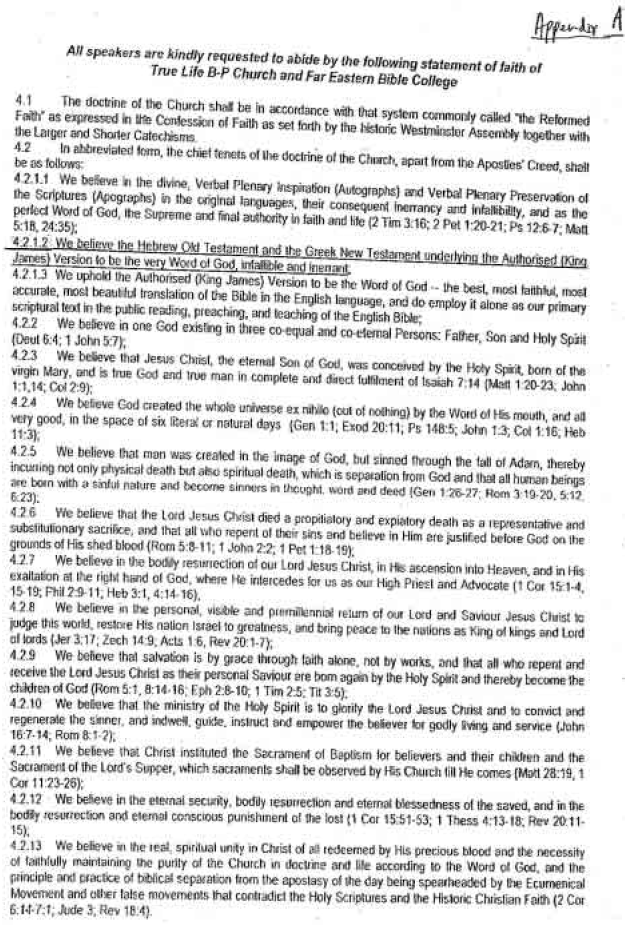
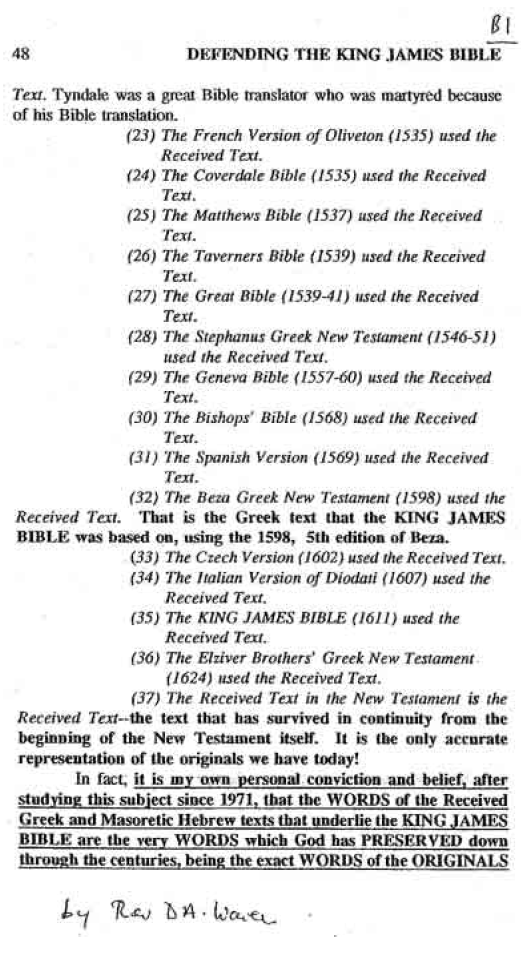
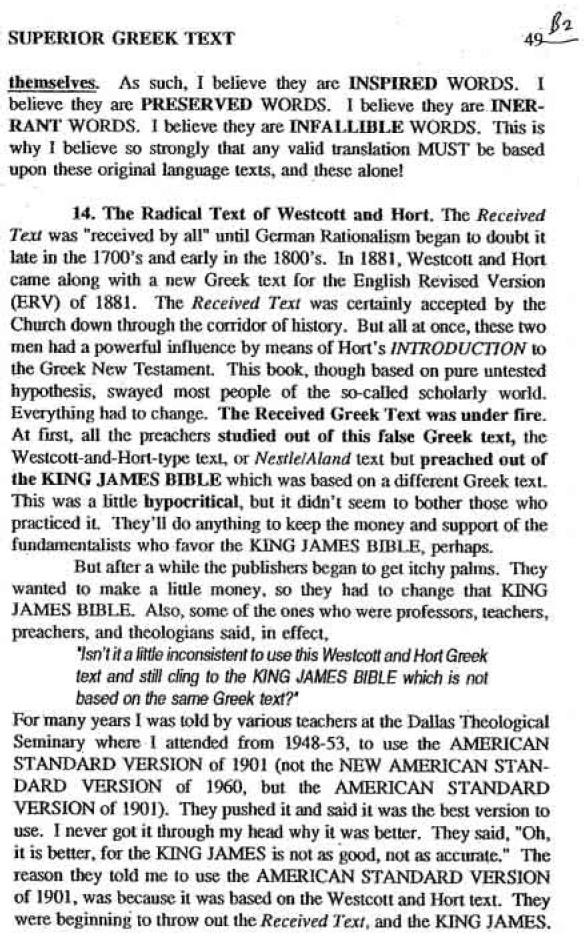
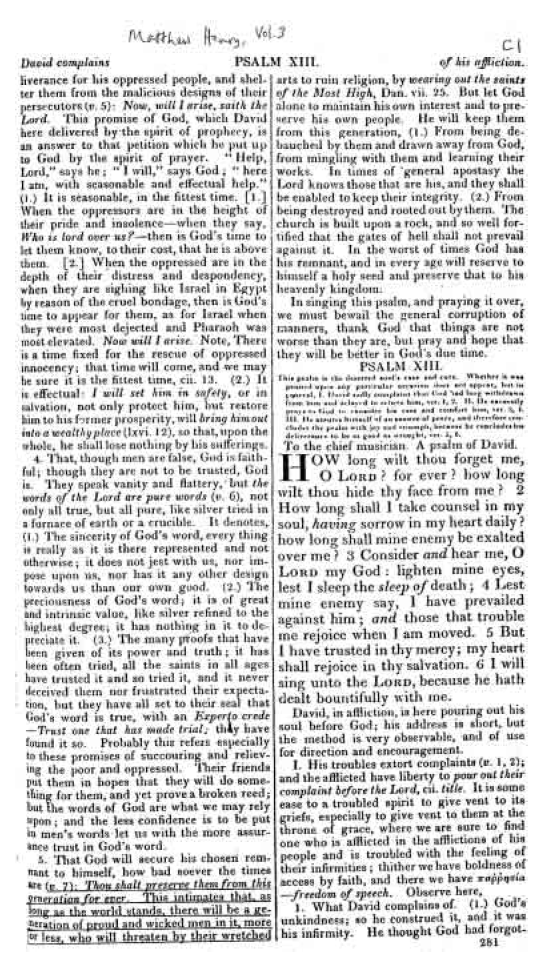
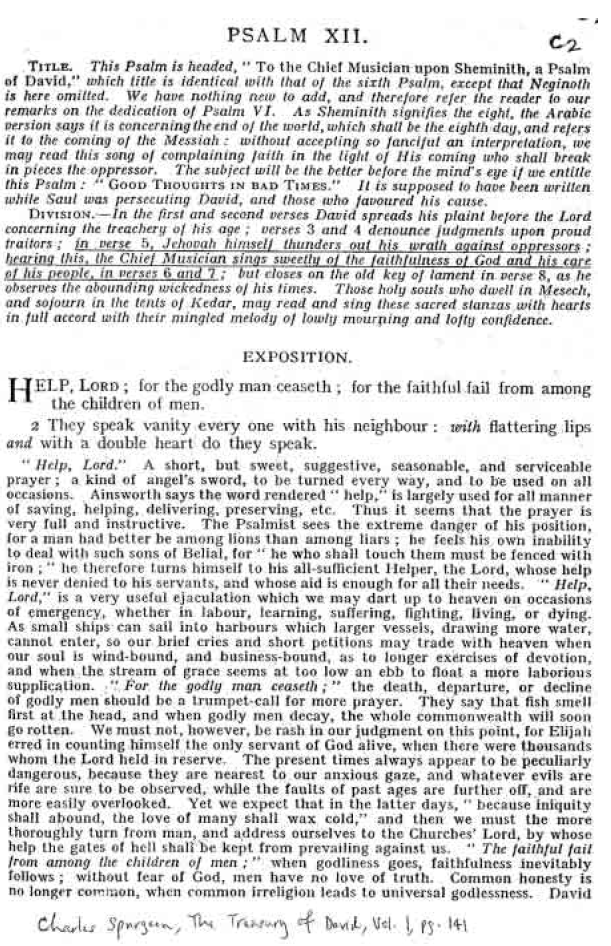
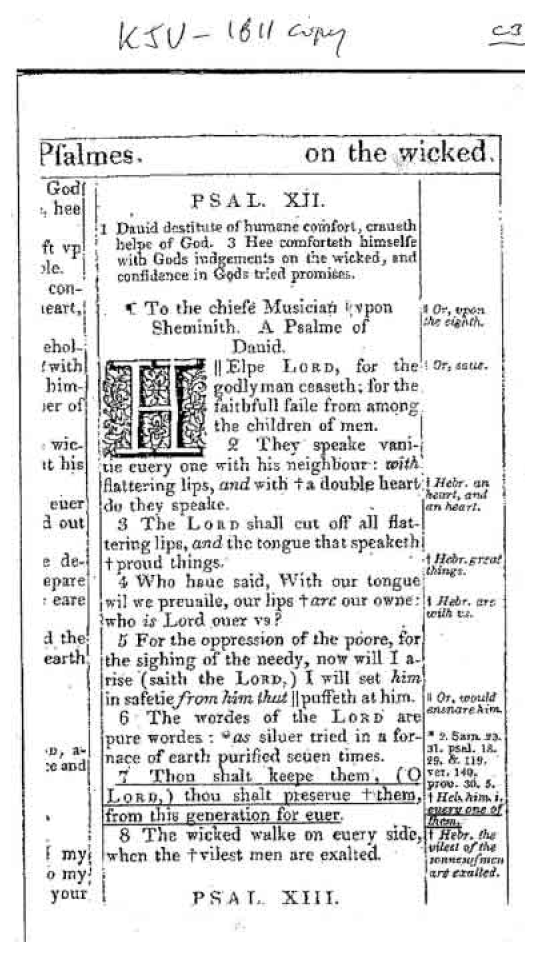
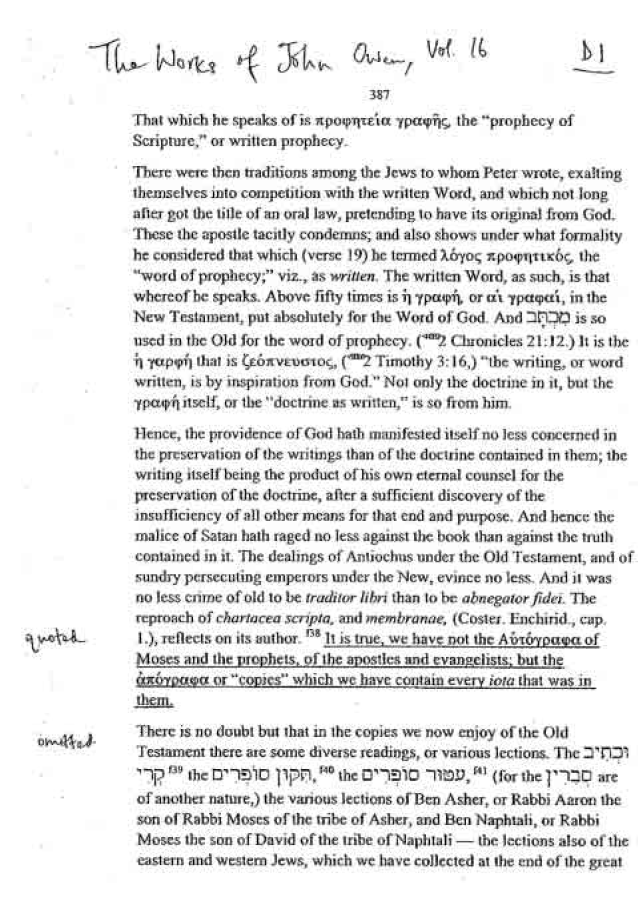
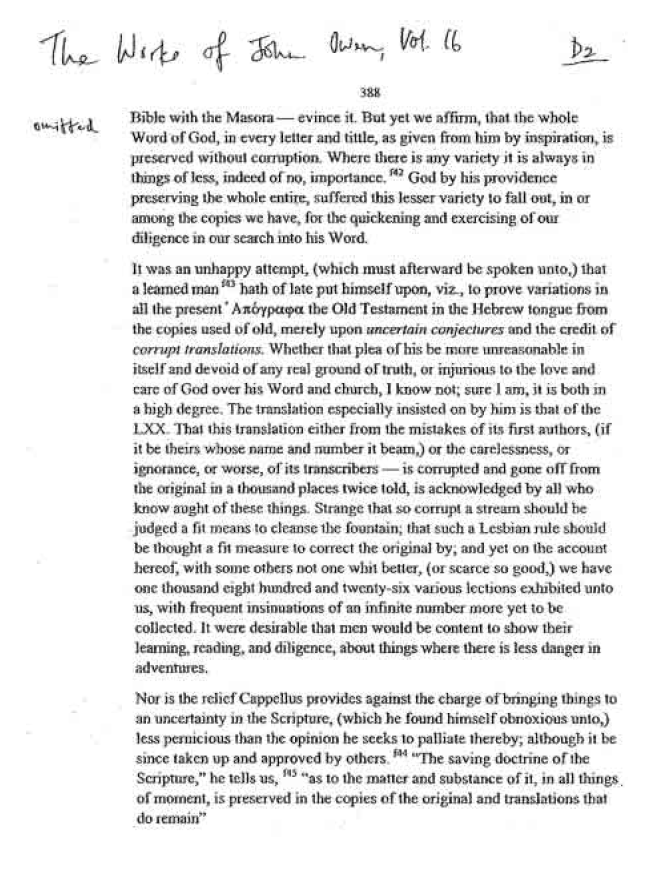
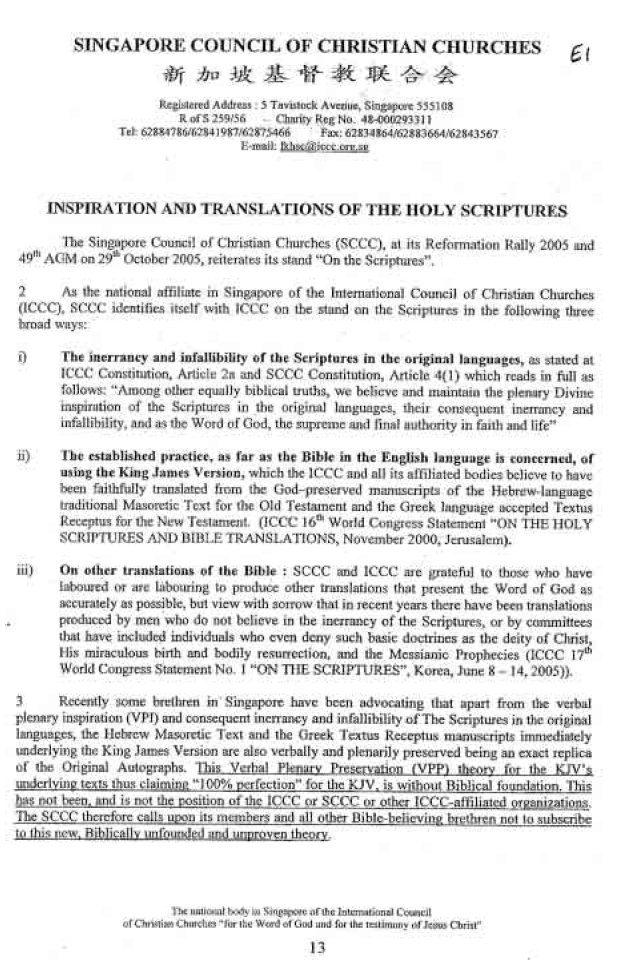
OUR STAND ON THE BIBLE
(A statement issued by the Board of Elders of Calvary Jurong
B-P Church to its members on Sunday, 2nd October 2005)
Dear members,
This meeting is a declaration of our stand on the Bible from
the Board of Elders. It is not a debate or Q & A session.
Our Church is facing a problem concerning a new teaching of
the Bible, namely Verbal Plenary Preservation (VPP). This teaching has
caused confusion among our members. They have requested to know our church
stand.
Initially, the Elders and Rev Chan did not want to engage in
the VPP issue, but the proponents of this new
teaching have not kept quiet. They continue to promote the VPP as a doctrine
in our church.
They misquote our Constitution doctrinal statement Article
4.2.1 as support for VPP. By so doing, they undermine the authority of the
Board of Elders and the pastor.
The Board of Elders is concerned for the welfare of the
Church and has decided to take a stand for our Constitution 4.2.1, and to
speak against the teaching of VPP which has caused strife and brought
confusion into our Church.
I. WHAT WE BELIEVE
1. Our doctrinal statement in Article 4.2.1:
“We believe in the divine, verbal and plenary inspiration
of the Scriptures in the original languages, their consequent
inerrancy and infallibility, and, as the Word of God, the Supreme and final
authority in faith and life”.
a. We hold to the inerrancy and infallibility of the Bible
in the original writings (autographs).
They are without error and perfect in every way.
They are the true Word of God to mankind.
b. In other words, we believe only the original texts
of the Bible are inspired and perfect.
c. The doctrinal statement in our Constitution 4.2.1 has
been taught in the Basic Bible Knowledge class.
2. We believe that God, by His singular care and providence,
kept His inspired Word pure in all ages, and are therefore
authentical (Matt 5:18, 24:35; Ps 117:2) as stated in the Westminster
Confession of Faith, “The Old Testament in Hebrew (which was the native
language of the people of God of old), and the New Testament in Greek
(which, at the time of the writing of it was most generally known to the
nations), being immediately inspired by God, and, by His singular care and
providence kept pure in all ages, are therefore authentical” (WCF,
chap.1.8).
a. God has fully preserved His Word in the body of
manuscripts (or texts or copies) after the original autographs were
lost.
Of course, this includes the Hebrew and Greek texts that
were used for the King James Version of our English Bible.
They were providentially preserved by God, and are
the closest to the original autographs.
b. It does not mean that all of the Word of God is uniquely,
miraculously and perfectly preserved in one single copy of the Greek
text, namely the Received Text, known as T.R.
3. We believe that the King James Version (KJV) is the
most faithful and accurate translation of the English Bible. We believe
that the KJV is the work of godly translators, using the best Hebrew and
Greek texts. We believe that the texts are closest to the original.
a. We will continue to use the KJV Bible in all our
ministries.
b. This is the position we hold from the beginning of the
Bible-Presbyterian Church in Singapore.
c. This is also the position held by the Westminster
divines, the Reformers, the KJV translators and many fundamental Christians
all over the world.
II. WHAT WE DO NOT BELIEVE
1. We do not believe that copies of the Hebrew (OT) and the
Greek (NT) texts underlying the KJV are perfect.
We do not believe that they are exact photocopies of the
original.
If they were perfect, then our Constitution 4.2.1 is wrong,
for the Constitution says that only the original texts of the Bible
are inspired and perfect.
2. We do not believe that the VPP is a doctrine.
The VPP is a new teaching.
It is based on human reasoning or assumption,
trying to elevate the Hebrew (OT) and Greek (NT) texts underlying the
KJV, to the level of the original autographs.
III. WHY WE DISAGREE WITH VPP
1. The VPP proponents make this new teaching a touchstone of
Christian fundamentalism.
Those who disagree with them are branded as
Neo-Evangelicals, Neo-Fundamentals, etc.
2. They promote this new teaching at all costs without
considering its destructive effects on the peace and unity of our church.
3. They undermine the authority of the Board of Elders and
the pastor.
CONCLUSION
1. The BOE has studied and examined the VPP issue very
carefully.
a. The BOE urges all members to abide by the doctrinal
statement of our Constitution 4.2.1, and to remember the membership vows
they have taken during baptism or transfer.
b. The BOE urges all who serve in leadership positions and
in the teaching ministry, not to promote or teach the VPP to our members. We
take this matter very seriously.
c. Beloved, let us press on and devote our energy toward
advancing God’s kingdom with a united heart, for the Lord’s coming is very
near.
May God help us to preserve the church! Amen.
The Board of Elders
Calvary B-P Church
2 October, 2005